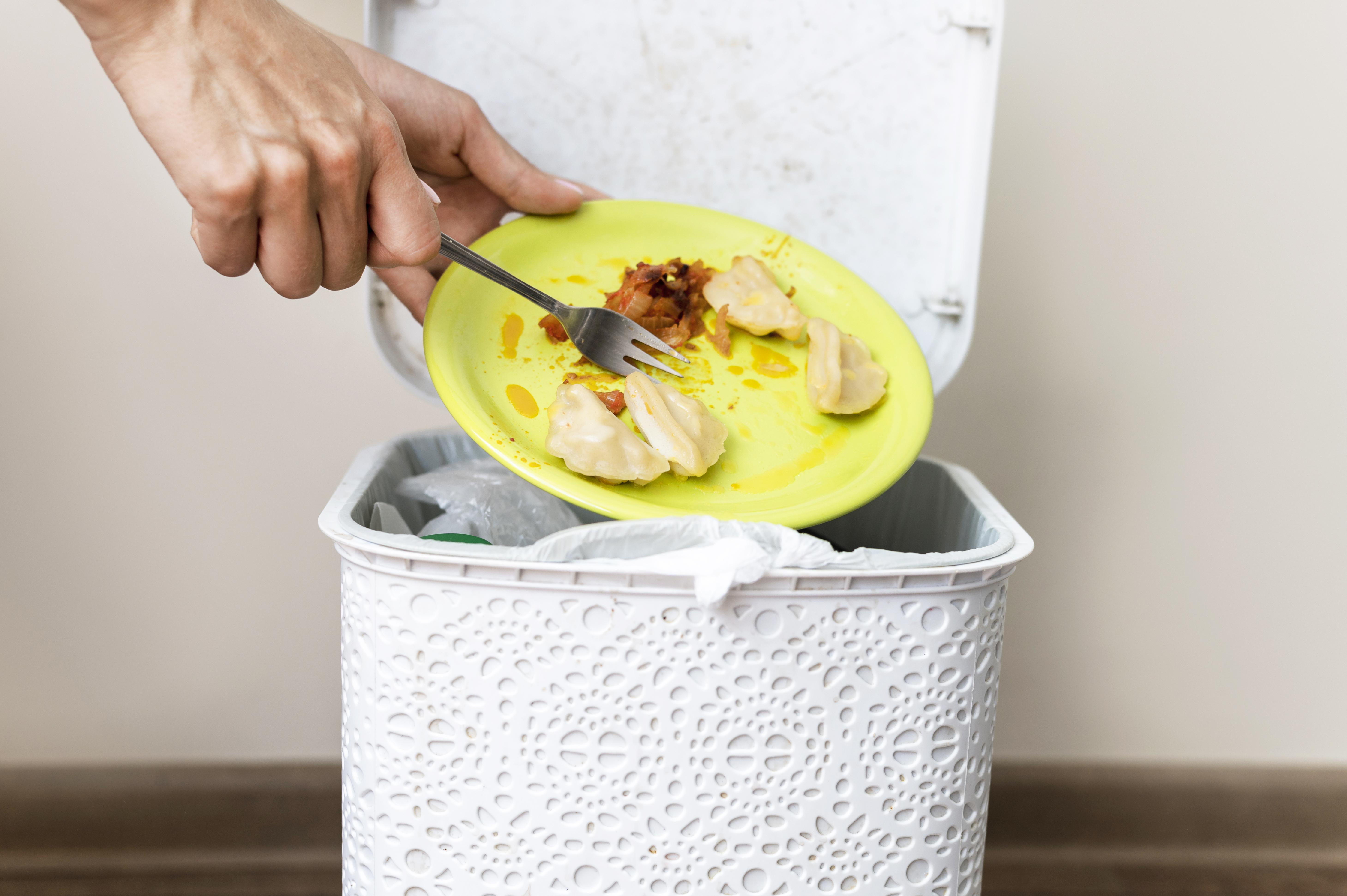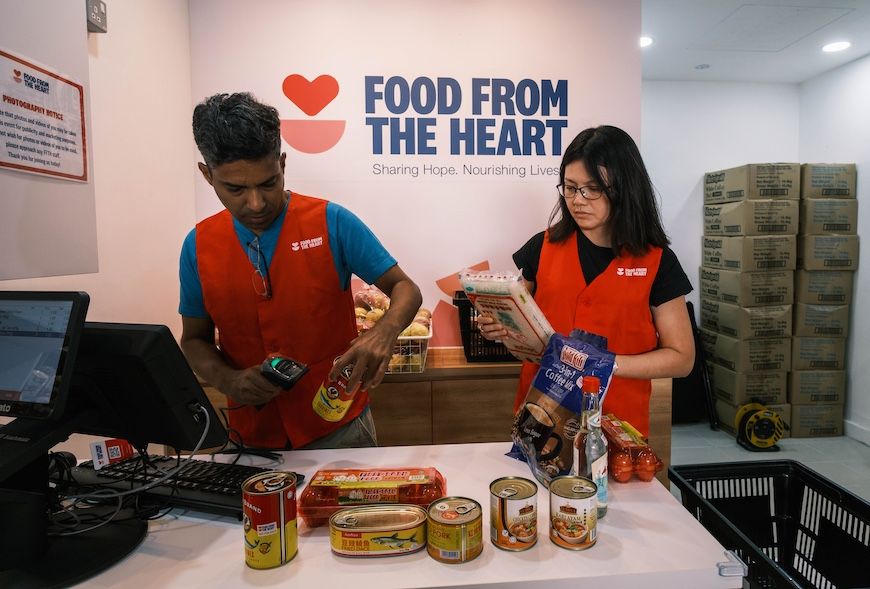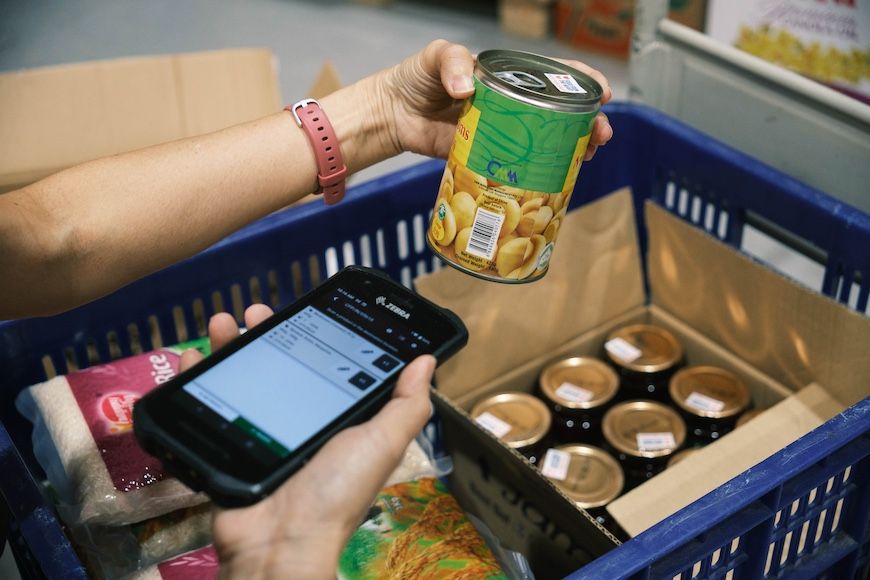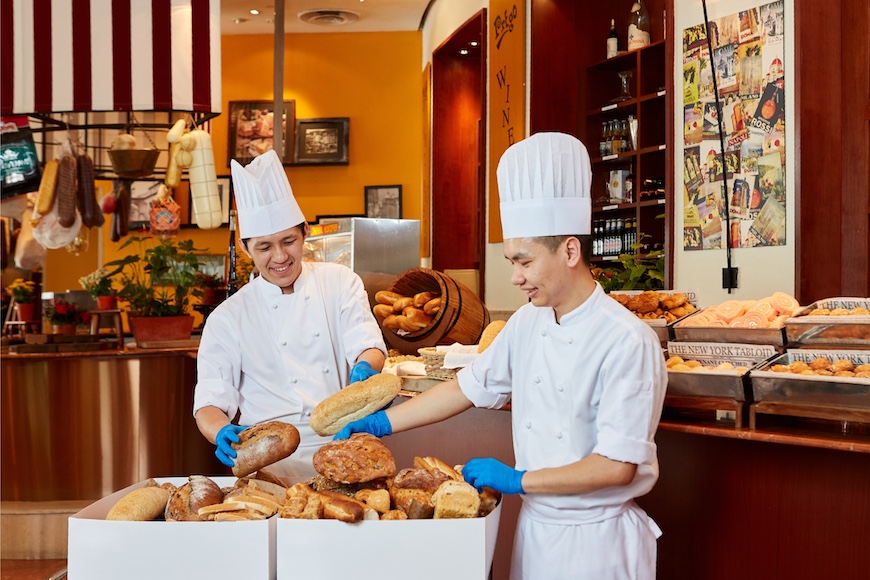Receive updates about our volunteering opportunities and latest happenings.
Published: 3 April 2025, Thursday

In Singapore, much has been done to increase the efforts to reduce food waste. Last year, the Good Samaritan Food Donation Bill was passed in Parliament to protect well-meaning food donors and charitable organisations have programmes in place to help channel surplus food to those in need instead of being discarded.
However, a large amount of food waste is still generated in Singapore, especially from the hospitality industry. In fact, as reported by The Straits Times in January 2025, according to a head chef in a renowned hotel in Singpore, approximately 50% of food prepared in buffets is wasted.
This statistic not only highlights a critical area for improvement within the sector but also reflects a broader issue across various industries. In 2023, the National Environment Agency (NEA) reported that food waste constitued about 11% of the total waste generated in Singapore, amounting to approximately 755,000 tonnes. Out of this, a staggering 623,000 tones ended up in landfills, with only a fraction being recycled.
This leads us to a critical question: Why does such surplus food exist and what can hotels do to address this wasteful abundance at its origin?
It is vital to first understand that businesses across all sectors have a role to play in this. From how food is produced and distributed to how it is served and consumed, different industries are connected in ways that can unintentionally add to food waste. Because of this interconnectedness, tackling food waste requires a concerted effort and every business plays a pivotal role in this environmental endeavour.
To support efforts in reducing food waste and propel waste reduction and recycling initiatives forward, government grants are bolstering efforts of individuals, interest groups, corporations and grassroot organisations. Non-governmental organisations have also actively engaged with communities, illustrating the power of collaborative community action.

In Singapore, the NEA actively encourages businesses to connect with food distribution organisations and charities to donate unsold or excess food.
Food from the Heart stands as a prime example of such an organisation, channelling surplus food to those in need. In addition to reducing food waste, we also support community welfare by redirecting surplus food to where it is needed most. Businesses, ranging from food manufacturers to establishments can engage with our various initiatives to channel any surplus food to nourish the community instead of filling up landfill sites.
Businesses across every sector play an important role is reducing food waste, so why is this a particularly criticial issue in the hospitality industry?
The economic and environmental impacts are startling, with global food waste estimated to cause S$1.25 trillion in losses each year. In Singapore, this issue has grown significantly, exacerbated by an expanding hotel industry.
In a world where one in nine people is undernourished, the stark reality that over a billion tonnes of food are discarded is something that requires immediate action. Hotels plays a crucial role in this scenario, not only due to their potential waste generation but also in their capability to influence sustainable practices and social impacts.
Moreover, reducing food waste is not just an ethical imperative but also a financial strategy. In fact, research shows that for every dollar invested in food waste reduction, hotels can see a return of seven dollars, with an average of 600% return on investment.
This begs the question: how can hotel managers not only reduce waste but also improve their bottom line?

Effective management of food production and inventory is crucial for minimising waste. By accurately forecasting and monitoring food consumption, hotels can prevent over-ordering, which is often a primary cause of waste. Implementing robust inventory systems helps track usage patterns and identify areas where food spoilage can be minimised through better storage and handling practices.
Hotels can also reduce waste by offering surplus food at discounted prices, a practice facilitated by innovative mobile applications. While this approach may not decrease the initial quantity of food prepared, it ensures that surplus meals do not end up as waste. This method helps hotels receive costs and extends the availability of quality food at reduced prices, contributing effectively to waste reduction efforts.
A notable example of this practice occured back in 2021, when Foodpanda partners with DBS, and introduced last-hour deals. These promotions encourages customers to purchase remaining food items at discounted prices towards the close of business, thus alleviating potential waste. Also launched in August 2024, the Yindii app targets reducing food waste from eateries by offering customers discounted, high-quality products from establishments like Baker & Cook. Through the app, customers can purchase a 'surprise bag' of unsold food from partner eateries for 50%-80% off.
Another key way to reduce food waste in Singapore is by fostering community partnerships. Conrad Singapore Orchard exemplifies how hotels can combat food waste innovatively. Utilising food digesters, the hotel significantly reduces its contribution to landfill waste by transforming organic refuse into reusable resources.
Additionally, they have been a long-term partner with our Bread Run programme, donating surplus pastries on a daily basis, showing a strong commitment to community support and environmental sustainability and setting a benchmark for the industry.
In confronting the escalating crisis of food waste, how can organisations like Food from the Heart catalyse meaningful change in food waste management?

Here at Food from the Heart, we have pioneered innovative solutions to curb food waste with our Bread Run and Market Place programmes.
These programmes facilitate the collection of unsold bread from local bakeries and hotels, as well as near-expiry or imperfect items from supermarkets. By converting potential waste into crucial supplies for those in need, these programmes demonstrate how repurposing surplus food can save the environment and strengthen community ties. Such actions not only rescue valuable resources but also provide crucial support to individuals facing food insecurity, enhacing community resilience through compassion and proactive measures.
We further extend our impact through strategic partnerships with respected entities like the Singapore Red Cross. These partnerships do not just aid in food distribution, but also they weave a denser network of support and encourage sustainable practices across sectors. Demonstrating collective responsibility and active involvement, these alliances effectively tackle the dual challenges of food waste and insecurity, illustrating the power of community collaboration in fostering substantial social change.
As we address the pressing challenges of food waste within the hospitality industry, the role of hotels becomes not just necessary but crucial. Proactive steps to minimise waste, such as embracing surplus food donation programmes, do not just mitigate environmental impact, they also extend community support, ensuring that the food prepared nourished lives, not landfills.
Food from the Heart's initiatives like our Bread Run programme exemplify how strategic actions can create significant societal benefits. By partnering with us, hotels can transform their surplus into support, helping us move towards a future where food security is a reality for everyone in Singapore.
Join us in turning excess into opportunity, and take a stand in the fight against food waste.
